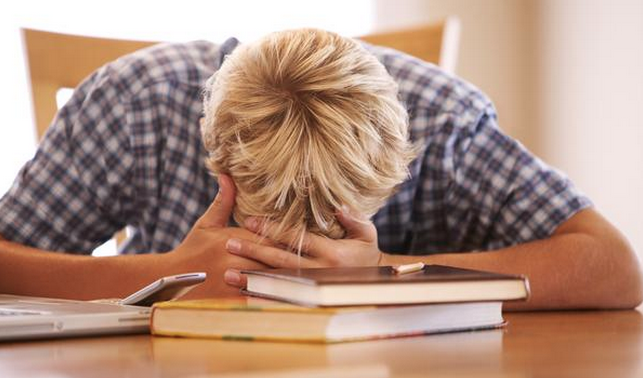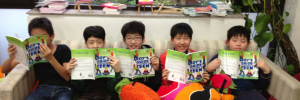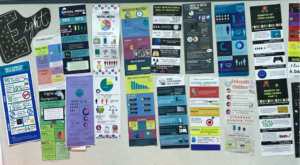This post originally appeared on Choices.Scholastic.com
It’s crunch time! Stress management for teens.
May is a stressful time to be at school. Younger kids are finishing up projects, older ones are gearing up for finals, and most of us teachers are left wondering how it will all get graded in time.
As adults, we know what can happen if we’re not dealing well with stress. Eating, procrastination, yelling, blaming, even binge watching TV… we all have unhealthy coping skills that we need to be aware of. Same goes for the kids. Now is a great time for a lesson (or a refresher) on stress.
Here are some ideas for middle school that could work for high school as well.
Day 1: What is stress?
Intro activity:
To encourage mindfulness, we want our students to recognize the physiological signs of stress. We do this by setting up a very high-pressure/low-stakes activity, like a cup-stacking tournament. Single elimination, very little practice, totally unfair.
By the time we get to the final round, kids are jumping up and down and are in full fight-or-flight mode. This is an idea I inherited from the teacher before me, and it does a great job getting the kids to experience stress with little chance of lasting humiliation.
If you don’t have sets of cups, a card game like War will do. The important thing is to put the brackets on the board, get the eraser out, and act like it’s the most important thing in the world.
Afterwards, I have the kids share what they were experiencing physically during the competition. Shaky hands, rapid heartbeat, butterflies, sweaty palms…
By the time we’re done chatting they’ve all calmed down and have mostly forgotten about the tournament. It’s a great chance to remind them that just because something doesn’t matter long-term, it doesn’t mean our stress responses change.
For example, how did you feel the last time you thought you lost your phone?
Day 2: Why do we experience stress? How does it affect me personally?
This is when we get into the nitty-gritty of stress; the key vocabulary, the fight-or-flight response, and some of the stressors that they experience as middle school students.
Here are some of the resources that we use:
The counselors! Ours pop by for a lesson on stress and as a reminder that they’re there if needed.
For younger students, Brain Pop: Stress is a great intro video and comes with resources, online quizzes and other materials. If your school doesn’t have a subscription, there are free resources available on KidsHealth.org.
If you’re looking for a book or more activities, try The Stress Reduction Workbook for Teens: Mindfulness Skills to Help You Deal with Stress.
And if you haven’t seen it yet, I highly recommend Kelly McGonigal’s TED Talk, How to make stress your friend. It’s a must watch for any health class, grades 6-12.
“Chasing meaning is better for your health than trying to avoid discomfort.” – Kelly McGonigal. LOVE THIS.
Which leads us right into the next lesson.
Day 3: Coping Skills
Journal: What are some of the healthy ways you deal with stress? What are some of the not so healthy ones? Be honest!
So many of the risk behaviors we try to protect our kids from – alcohol, drugs, bullying, food issues– are all unhealthy ways of dealing with stress. The secret is to find some healthy coping skills before the unhealthy ones have a chance to set in.
We brainstorm a list of as many as we can on the board – meditation, journaling, hanging with friends, talking to your mom, watching YouTube videos of cats falling down (within moderation of course!) – and the kids jot down their top five.
Then after watching this awesome video from Berna and Team Choices, they get to work on creating a similar video of their own.
Instruction sheet and rubric: Stress Buster Video Rubric
If you don’t have time for a big project, this could easily be adapted into a poster, a presentation, or something else a little quicker.
Now stop surfing the Internet and get back to that pile of work…





